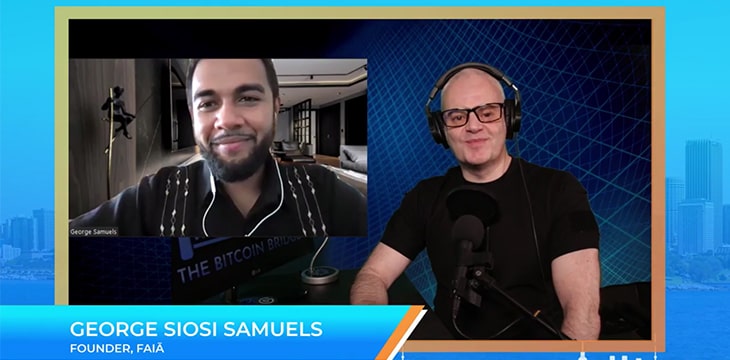|
Getting your Trinity Audio player ready...
|
What can Bitcoin do for a remote, archipelago nation in the South Pacific? Quite a lot, according to Faiā founder George Siosi Samuels. This week, CoinGeek’s weekly Asia/Pacific-focused show The Bitcoin Bridge looks at the Tuvalu National Digital Register—a project that’s getting a lot of attention in the BSV industry.
George is very much an APAC person, coming from Australia with Tuvaluan and Samoan heritage, and based much of the time in Singapore. Part of Faiā’s consultancy work involves looking at the human and cultural side of technological advances, and finding solutions that fit best.
Communities are important, both online and national, and this fact played a part in the birth of the National Digital Ledger project. It stemmed from a conversation George had with about the .tv internet domain and Tuvalu’s development in general, which soon turned into a Medium article. That article went viral in Tuvalu itself, reaching the top echelons of the country’s government—who got in touch with George to talk about potential solutions. They were open to Bitcoin SV‘s (BSV) potential as a ledger on which to base all kinds of national records, and the rest grew from there.
What can Bitcoin do for Tuvalu?
But what is “the rest”? Together with nChain and Elas Digital, Faiā has big plans. Watch the full interview to hear all the details about what and when, but it’s likely to involve records like identity and citizenship for starters. George explains how Bitcoin could potentially replace all records and create even a new digital financial system for the country.
“With a population of between 11 to 13,000 you could have a nation like Tuvalu roll out, essentially, a cash system that leverages BSV for everything.”
Replacing a national currency with Bitcoin (Tuvalu currently uses the Australian dollar) isn’t a specific aim, but there’s no reason BSV use couldn’t become widespread. Due to location and geography, mobile phone use is widespread in Tuvalu and so you can easily see why an app like HandCash could become useful.
George also talks about the bigger picture here; the strategic role smaller nations play in global geopolitics (in their relations with larger countries) and how technology can help them become more independent and less reliant on foreign aid. For Tuvalu, there are also environmental concerns—the country is one of the world’s lowest-lying and stands at risk of literally sinking if ocean levels rise.
It’s an interesting interview that shows some of Bitcoin’s true potential with or without the digital payments aspect, and creates a sense of purpose. It’s a technology not only for the rich—that’s a common trope in blockchain, but here’s a real-world example of teams cooperating to make it happen.
Check out previous episodes of The Bitcoin Bridge on Streamanity.

 02-15-2026
02-15-2026 




